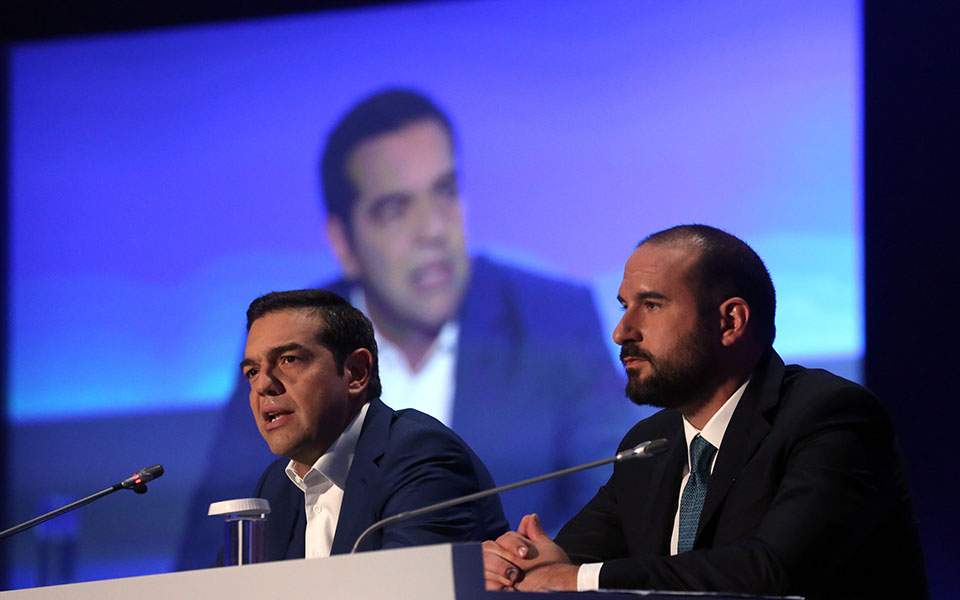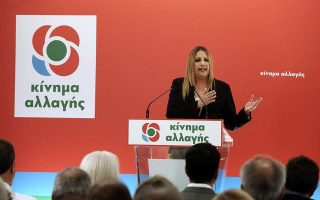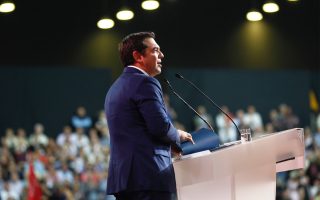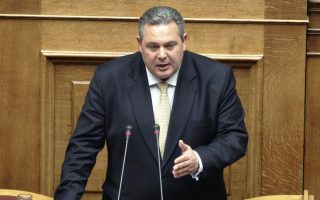Greek prime minister insists relief measures are feasible

Prime Minister Alexis Tsipras insisted on Sunday that the tax breaks he promised on Saturday during his keynote address at the Thessaloniki International Fair (TIF) are “absolutely feasible.”
In a press conference covering a wide array of issues, Tsipras said the measures he announced will work towards relieving the pressure on those that shouldered a disproportionate burden during the crisis and on the middle class. “I said last year that we will have the fiscal room to do this as of 2019,” he said. According to government estimates, this fiscal leeway is in the area of 800 million euros.
Tsipras's statements drew harsh criticism from the opposition, with New Democracy, which has a lead of 11 percent according to a weekend poll, dismissing them as a “swan song by a cynical prime minister.” Movement for Change (KINAL) chief Fofi Gennimata, meanwhile, accused the leftist of pedaling “poverty and crumbs,” and making promises of handouts that other governments will have to implement.
On Saturday, Tsipras announced reductions of corporate tax to 25 from 29 percent as of next year and of value-added from 24 to 22 percent. He also pledged to slash the ENFIA property tax by up to 50 percent for lower income households and reduce social security contributions by the self-employed and farmers by up to 35 percent.
Seeking to allay the concerns of Greece’s lenders, Tsipras vowed, however, to stick to agreed fiscal targets and reforms.
Greece has committed to an annual primary budget surplus of 3.5 percent of gross domestic product up to 2022. In response to concerns that the recent financial turmoil will compromise Greece’s ability to tap the markets, Tsipras said the country is shielded for the next two years because of the liquidity buffer it has accumulated.
As for pension cuts, Tsipras said that if the data shows, as he expects, that the Greek economy will exceed primary surplus targets in 2019, then the argument for extra cuts, championed by the International Monetary Fund, will be invalidated.
With regard to foreign policy, he rejected claims that the government was pressured by foreign countries to resolve the name issue with the Former Yugoslav Republic of Macedonia and said that Greece initiated the talks.
The deal has drawn strong opposition and protesters clashed with riot police on Saturday over the issue. Eight people were arrested and 15 officers were injured, while extensive damages was reported.
Junior coalition party, the Independent Greeks (ANEL) and its leader Panos Kammenos have repeatedly expressed their opposition to any name deal that includes the term “Macedonia.” Nonetheless, Tsipras said stressed that Kammenos will not jeopardize economic recovery and political stability.
As for elections, Tsipras said his “strategic choice” is to hold general elections at end of the government's mandate in 2019.





